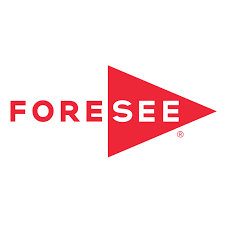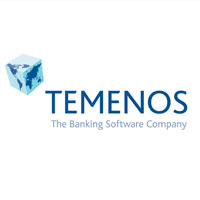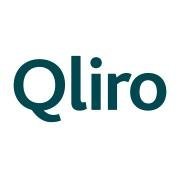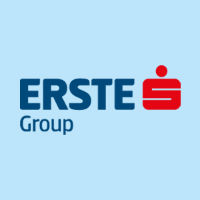Published
- 01:00 am

Silicon Valley analytics firm FICO today announced the availability of FICO Card Compromise Manager, an anti-fraud solution that proactively detects and prioritises compromised merchants and data breaches involving card data.
Card Compromise Manager uses an organisation’s FICO Falcon data and applies advanced analytics and graph analytics to detect merchant compromises faster and more accurately than the manual processes typically employed. It can analyse an issuer’s entire card portfolio automatically, using unsupervised analytics and adaptive behavioural analysis to assess all transactions for potential merchant compromise, and empower an issuer to take the action needed.
“Payment card fraud continues to rise as criminals adopt new, more sophisticated technology,” said TJ Horan, vice president of product management for FICO’s fraud solutions. “Yet many card issuers are still using spreadsheets to determine the highest priorities for investigation. With Card Compromise Manager, issuers can apply analytics and automation to reduce the impact of fraud on their customers and their bottom line. The integration with Falcon creates the ideal platform for detecting any kind of fraud risk, faster.”
Globally, the FICO® Falcon® Platform is the leading payments fraud management solution, protecting more than 2.6 billion payment cards. With the platform, organisations can cost-effectively reduce fraud losses, protect brand reputation, gain efficiencies and improve the customer experience across multiple products, channels and lifecycle stages.
Related News
- 04:00 am

ForeSee, the leader in Voice of Customer solutions, today announced a new solution to help retail banks prioritize investments across the customer journey for maximum business impact.
"Banks are starting to realize that a strong CX program is the last frontier of differentiation," said Jason Huffman, Vice President of Customer Experience at Union Bank & Trust. "ForeSee has helped us prioritize the changes with the biggest ROI, allowing us to give our customers the world-class technology of a large, national bank along with the personal touch of a community bank.”
“Retail banks are playing catch up to digitally demanding customers, and the emergence of fintech has disrupted the industry and upped the ante for retail banks to compete on delivering great experiences,” said Jason Conrad, Vice President at ForeSee and head of ForeSee’s retail banking practice. “The challenges can’t be overstated but the path forward is clear: since CX has a long-standing and proven impact on revenue, loyalty, NPS, and customer lifetime value, retail banks can and should use CX as a strategic and competitive advantage.”
ForeSee’s new retail banking solution allow clients to:
• Measure the banking experience with a cross-channel measurement bundle that collects voice of customer data across desktop web, mobile web, mobile apps, email, banking branches, and call centers. ForeSee can provide CX scores and NPS scores for each channel and touchpoint.
• Conduct strategic segmentation analysis, including integrations with other data sources already in place (such as the Adobe Marketing Cloud and Google Analytics) in order to determine who customers are, what they do, and where there are opportunities for upsell and cross-sell.
• Identify and act on upsell opportunities by leveraging ForeSee’s Priority IndexSM, an industry first that takes a company’s CX scores from every customer touchpoint, as well as across the entire customer journey, and prioritizes the CX improvements that have the biggest impact on the business. ForeSee also offers smart question triggers that can hone in on opportunities for auto loans, mortgages, and other next-best action and cross-sell opportunities.
• Optimize the customer journey by understanding how digital experiences contribute to actions in other touchpoints, why customers abandon, the role of branches in a modern customers' experience, and the critical interplay of various experiences at different touchpoints.
• Grow earned loyalty by understanding customer experiences with a bank brand overall, as well as with individual touchpoints, measuring and understanding customer engagement, and conducting strategic segment analysis on lifetime value.
These tools and apps have been carefully crafted for retail banks within ForeSee CX Suite, allowing companies to manage all of their customer experience intelligence needs from one place. Building on ForeSee’s proven measurement model, ForeSee CX Suite consolidates customer experience measurement tools, data, and insights into a unified suite. Armed with a comprehensive view of their customers, executives can now be certain about how to manage and prioritize CX improvements and profit from customer feedback.
Related News
- 02:00 am

Coinsilium Group Limited (NEX: COIN), the accelerator that finances and manages the development of early-stage blockchain technology companies, is pleased to announce that it has signed a Memorandum of Understanding (“MoU”) with HyperChain Capital (“HyperChain”), one of the world’s first multi-million-dollar hedge funds investing in Blockchain companies, to collaborate and finance co-investment opportunities in blockchain companies.
• MoU for Coinsilium and HyperChain to forge closer ties and consider co-investment opportunities in blockchain companies
• Since 2016, Singapore-based HyperChain has invested in more than 20 blockchain companies, mainly via their Initial Coin Offerings (‘ICO’)
Investments in Blockchain companies via ICOs have surpassed VC investments in 2017.
HyperChain, led by Stelian Balta, is one of the world’s first large hedge funds investing in blockchain companies and new blockchain protocols via the acquisition of newly issued crypto and application-specific tokens (‘Tokens’).
The collaboration will leverage the parties’ complementary expertise and skillsets for investing in and supporting blockchain companies. Coinsilium and HyperChain are co-investors in social trading crypto platform CoinDash which plans to launch its Token sale this summer.
Investments in Blockchain companies via ICOs have surpassed VC investments in 2017 with over $327m in ICO offerings compared to $295m raised through VC funding as stated in Coindesk on 9 June 2017.
Eddy Travia, Coinsilium’s CEO commented: “We are very pleased to be firming up our relationship with HyperChain following our mutual investment in CoinDash. In this fast-growing market, there are only a few large hedge funds with a focus on Token offerings and fewer still that can claim the experience and aptitude of HyperChain. We look forward to a mutually beneficial collaboration in this exciting new sector.”
HyperChain’s CEO, Stelian Balta, is a tech entrepreneur and global investor with vast trading experience in financial markets and with a clear focus on technology, finance and innovation.
Stelian Balta, CEO of HyperChain stated: “We are very proud to be forming this alliance with Coinsilium who we regard as pioneer investors in blockchain technologies. HyperChain and Coinsilium are early-movers in the blockchain Token investment space and we look forward to identifying co-investment opportunities in innovative blockchain companies and protocols together.”
Related News
- 04:00 am

Temenos Group, the software specialist for banking and finance, has become the latest Leadership Circle Partner of the Luxembourg House of Financial Technology Foundation (The LHoFT).
The first event is the LTS Fintech Hackathon in Luxembourg. Over the course of the last weekend of June, 30 teenage students from the Luxembourg Tech School (LTS) will develop and present their answers to the question: “What does the bank of the future look like?” The students will be guided by various senior technology and business mentors from the local financial services industry, all of whom are eager to engage with the students and to receive insight into the way this generation’s expectations of financial services are shaped by their tech orientated social environment and lifestyles. The event will also be supported by Luxembourg’s Ministry of State and Digital Lëtzebuerg initiative.
On the 5th of July, Temenos Group and the LHoFT will address a burning issue with a focused conference: how to master banking transformation - moving from the traditional banking to open-banking with the Second Payment Services Directive (PSD2). Keynote speakers include the Luxembourg regulator (CSSF), the Banker’s Association (ABBL), Temenos Marketplace providers Apigee and Blue Code, runner-up at Temenos annual Innovation Jam competition, as well as many others. The speakers will discuss the challenges facing the banking industry related to transformation and practical strategies, with case studies, on how to ensure continued future competitiveness.
Temenos Group joins the eleven other distinguished members of the LHoFT’s Leadership Circle: BCEE, BGL BNP Paribas, Clearstream (Deutsche Börse Group), Deloitte Digital, Foyer Group, KPMG, POST, PwC, Six Payment Services, Société Générale and Telindus (Proximus Group).
Nasir Zubairi, CEO of the LHoFT comments: “We are incredibly excited to have Temenos join our Leadership Circle. Temenos have been at the forefront of innovation for a long time and their experience, in collaboration with the LHoFT, can really help drive Fintech forward. I am very excited about the two forthcoming events and the positive impact they will have on industry. I look forward to future collaboration with Temenos on a variety of projects.”
Ben Robinson, Chief Strategy Officer at Temenos and Head of Community for the Temenos MarketPlace adds: “Temenos is committed to offering its customers the highest levels of innovation. Increasingly, we do this through the Temenos MarketPlace, our open banking platform that brings together banks and Fintech companies. This partnership with the LHoFT will help us to grow the community around MarketPlace and to uncover the most exciting Fintech companies.”
Related News
- 03:00 am

To broaden their offering within Financial Services, Qliro has launched a digital service for savings accounts. The underlying technology comes from Emric, a part of Tieto.
"The company has recently launched savings accounts with Swedish state deposit insurance. Qliro chose Emric, a part of Tieto, as supplier of the digital solution for the deposit value chain", says Pedram Tadayon, CEO at Emric.
Tieto’s system means that Qliro, instead of developing their own system from scratch, has been able to buy a ready-made solution and then build their own customer interface. For Qliro’s customers, this means a fully digital and secure service covered by state deposit insurance.
Qliro has created a user-friendly and secure product supported by the system from Tieto. The collaboration was initiated a while ago and has, through close contact and continuous dialogue, worked well according to Qliro. Qliro’s proprietary front end communicates with Tieto’s system in real time through API. For the consumers, this means access to secure and mobile-friendly savings. The service is completely digital and activated through BankID, the leading electronic identification in Sweden.
"Our system is built on open APIs, so it is easy to build mobile solutions with it. We become a part of the eco system and it enables us to launch other services in the future", says Pedram Tadayon, CEO at Emric.
Emric delivers the underlying system (Emric’s Managed Services solution) for the entire deposit value chain from automated customer registration to administration. The solution includes the core system that entails a digital self-service platform, verification through BankID, accounting, but also staffing for general administration.
All new applications are handled electronically and contracts and documents are signed through BankID. Customers can manage their accounts through an array of channels, such as mobile devices. The implemented solution gives Qliro an easy and intuitive way of managing their savings accounts.
"We are very pleased to launch our automated deposit service with Qliro. By using Emric’s Managed Services, Qliro can be confident in meeting the legal requirements and efficiently managing administration, while Qliro gets the flexibility to offer new products and services with shorter lead times for their customers", says Pedram Tadayon.
Related News
- 06:00 am

Micro-investing app, Acorns, has highlighted its commitment to sustainability with the launch of a new, socially responsible investment portfolio, available from today.
Acorns Australia CEO and Managing Director, George Lucas said the launch of the Emerald Portfolio gives customers an investment portfolio aligned to their values.
“Since launching Acorns in Australia more than a year ago, one of the greatest frustrations we increasingly hear from our customers is the challenge of knowing where their money is being invested,” Lucas said.
“Acorns is a product designed with the consumer in mind; whether it’s helping them invest in markets, improve financial literacy or find money to invest. The Emerald Portfolio furthers this goal by providing users with an engaging option that empowers them to invest according to their values”
The Emerald Portfolio is fully diversified across asset classes and geographical regions, including Australian equities, international equities, bonds and cash. It has a risk-return profile similar to Acorns’ current “Moderately Aggressive” portfolio and aims to achieve similar returns.
More than one in 100 Australians have signed up to Acorns in the year since its launch, with uptake primarily from millennials looking to get a start in the investment market and increase their financial literacy.
“Millennials are more attuned to the social impact of their actions than other demographics and are driving the interest in sustainable investment. However, they also don’t want to give up their ability to get returns,” Lucas said.
“The Emerald Portfolio allows them to participate in the financial markets with an option to align their investments more closely to their values.”
The portfolio launch follows another milestone in Acorns’ commitment to ethical investment, with last month’s unveiling of the Carbon Footprint estimator. This tool calculates a user’s carbon usage based on their spending activities and has the stamp of approval from Emerald Club, Australia’s largest socially-responsible investment platform.
The Carbon Footprint estimator and the Emerald Portfolio are only available to Acorns Australia customers.
Related News
- 03:00 am

The SmartStream Reference Data Utility (RDU), founded by Goldman Sachs, JPMorgan Chase, Morgan Stanley and SmartStream, today announced a new Markets in Financial Instruments Directive II (MiFID II) reference data service, enabling financial organisations to more easily meet regulatory requirements, which go live in January 2018.
The RDU provides a fully integrated reference data set to support pre-trade price transparency, post-trade reporting and transaction reporting, sourcing data from ESMA, ANNA, GLEIF, the National Competent Authorities and trading venues, as well as enrichment feeds, where applicable. The result is a simple to use, enriched source that allows customers to focus on ensuring that their trading processes comply with the new regulations. In addition to an aggregated data feed, the service includes an API that allows customers to integrate with the ANNA Derivatives Service Bureau for ISIN look-up and creation, and determine if an OTC instrument has an equivalent that is Traded on a Trading Venue (ToTV).
Peter Moss, CEO, The SmartStream Reference Data Utility, states: “In workshops with over 40 Systematic Internalisers and other industry participants, we’ve observed a wide variance in MiFID readiness. Our goal is to shield customers from what is a very fluid MiFID environment, accelerate their implementation program and protect their critical path from gaps in availability of key data sets and regulatory interpretation. We are already in testing with clients, helping prepare them for the industry tests that will take place in the summer”.
Related News
- 02:00 am

Startupbootcamp FinTech, the world’s leading accelerator focused on financial innovation, has announced its first ever Demo Tour, replacing the traditional Demo Day that marks the end of the accelerator program.
The Startupbootcamp Demo Tour is the first of its kind in Asia. It aims to highlight the startups specifically for vetted and highly relevant investors and financial institutions, while also enabling collaboration and fundraising opportunities.
The “Odyssey” themed tour will consist of four distinct Demo Days in Singapore, Chengdu, Hong Kong and Tokyo. Invites to each event will be based on relevance and readiness to collaborate with the startups.
The tour schedule is as follows:
● 5th July: Singapore - In partnership with LATTICE80, pitching and focused networking with investors and financial institutions from the local FinTech ecosystem.
● 7th July: Chengdu - In partnership with Chengdu Hi-Tech Industrial Development Zone and Thinkzone at Startupbootcamp China’s Headquarters in Thinkzone Park.
● 10th July: Hong Kong - Pitching and focused networking with investors and financial institutions from the Hong Kong FinTech ecosystem, supported by Cyberport, InvestHK, NexChange and Starthub.
● 14th July: Tokyo - In partnership with Finolab. Pitching and focused networking with investors and financial institutions from the Japanese FinTech ecosystem. This leg is additionally supported by NTT Data.
Traditionally, Demo Days at the end of the Startupbootcamp program have been key events for startups to connect with possible investors and partners, and have proved instrumental in helping them to achieve the 79% post-accelerator funding rate that Startupbootcamp-accelerated startups typically benefit from (within 6 months of Demo Day). At the 2016 Singapore Demo Day alone, over 600 representatives from leading investors, program partners and some of the region’s most prominent financial institutions were in attendance.
Startupbootcamp’s 2017 cohort is characterised by a diverse group of international backgrounds and focus areas within FinTech. The companies are offering solutions in a wide range of sectors, from wealth management and payments to core banking and InsurTech. All of the solutions are readily applicable to multiple Asian markets, and Startupbootcamp is supporting this regional outlook by providing an end-of-accelerator experience that allows the cohort to further develop their commercial relationships Asia-wide. The Demo Tour will enable members of the 2017 cohort to make direct connections with industry decision-makers, strategic investors and partners in four of the most important Asian markets.
Samuel Hall, Startupbootcamp Program Director in Singapore said that: “For our startups, the opportunity offered at Demo Day to meet investors and develop partnerships with financial institutions has traditionally been the culmination of their accelerated growth throughout the program. The event is hugely valuable to startups, and by providing them with a Demo Tour, this year we will enable them to enjoy regional high-impact exposure and build beneficial relationships with stakeholders in more markets than ever before. Our startups are now ready to collaborate with industry partners, and our new approach to Demo Day gives them the best opportunity to build traction across the region as quickly as possible.”
Related News
- 06:00 am

George, the digital banking platform developed by Erste Group Bank’s in-house fintech and widely recognized as one of the most advanced in Europe, has hit the one million users mark in Austria two years after its launch.
“We see the one million mark as a strong validation by our clients, with an average of 10,000 new users signing up every week. What clients say makes a huge difference to them is the fact that George is visual, intuitive and fun to use. But even more than that, they appreciate its modular structure, which enables them to actually build their very own George on top of its broad range of core functionalities. By helping them better manage their lifestyles, we see George as an example of how client data can be used for clients’ own benefit,” explains Peter Bosek, Chief Retail Officer at Erste Group.
George is designed as a front-end interface on top of a legacy core banking system, offering clients personalised digital banking to suit their differing needs. Its open platform approach and plug-in infrastructure provide it with exceptional customisability and flexibility, including for cooperation with fintechs and other third-party providers to add new features that provide clients with value-added solutions. Customers using George also benefit from the platform’s ability to import banking data for accounts they might have at other banks, applying George’s personal financial planner tools and analytics to it. George manages to open up the model of a traditional bank with data-driven services, while minimising the impact of a legacy system on real-time financial interactions. “We used design thinking to develop a platform that combines the best of two worlds. On one hand, as one of the largest banks in Austria and CEE, we’ve brought the advantage of scale, as well as the depth of our experience in financial and risk management; on the other hand, our plug-in approach brings the benefits of new value-added services, including those offered by fintechs,” Bosek states.
George’s ability to integrate plug-ins, including those from third parties, establishes it as the nucleus of new business models that will allow Erste Group to respond to the broader challenges raised by digitalisation disruption. With over 117,000 plug-ins activated by users, George has already developed into a marketplace. “We are looking forward to PSD2: it will bring about the ‘platformication’ of banking and is thus playing to our strengths. Our vision is to build the iTunes store of European finance,” Bosek adds.
Upcoming launches in the Czech Republic and Slovakia this year, followed by the Romanian market in 2018 will extend George to an additional 10 million Erste Group customers and beyond, turning it into the first financial aggregator in Central and Eastern Europe. By 2020, George will be available to all of Erste Group’s over 16 million customers in the seven markets in which the banking group is present. “George will be Erste Group’s standardized digital interface across CEE over the next three years,” Bosek notes. On a regional basis, the platform will be able to offer country-specific products and plug-ins; cooperation with other banks outside Erste Group's core markets is also under consideration.
George was awarded 3rd prize in the Digital Distribution category within the Efma & Accenture Innovation Awards. Autonomous, the independent research provider, recently ranked Erste Group among the top 3 retail digital banks in Europe.
Related News
- 07:00 am

HalCash North America (HCNA), referred to in the U.S. as its operating brand Pin4™, announced the acquisition of a majority equity ownership stake in HalCash International (HCI).
The HalCash system was developed in Spain by ABANCA, Bankinter, Banco Popular, Cajamar and Caja Laboral. The system currently provides access to more than 8,000 ATMs throughout Spain and is used by financial institutions, marketing companies, remittance companies and other businesses to deliver real-time cash payments to their customers. In 2016, HCI conducted more than 800,000 transactions and is expected to exceed 1,000,000 transactions in 2017.
In 2015, Pin4 was formed to bring the highly-successful HalCash system to the U.S under the brand Pin4. Pin4’s controlling interest allows for an accelerated growth strategy that will aggressively expand the system into new countries to create a global cardless cash network. This expansion turns ATMs into mobile money terminals by combining the 4.8 billion global mobile phone users with the 3 million globally deployed ATMs, according to GSMA and ATMIA respectively.
This innovative system evolves the traditional consumer ATM experience, allowing for cardless disbursement of in-country and cross-border transactions such as person-to-person transfers, emergency cash, disaster relief, and consumer promotions and rewards. The system is secured by a patented dual-pin authorization process, which gives disbursing companies access to a complete consumer base—the banked, under-banked and unbanked communities.
“Today’s consumers are both mobile-centric and global,” said Richard Witkowski, CEO of Pin4. “The ability to disburse funds to this consumer base regardless of card and bank status is invaluable to our customers—from retailers and marketing companies to banking institutions and remittance companies. Pin4 was built to meet this need. And, now, we are properly positioned to rapidly take this capability global.”
The transaction was led by U.S. fintech private equity firm Ashby Point Capital—an early HCNA investor. “We’re excited about the prospects for cardless ATM technology,” said Jim Leroux, new CEO of HCI and current Ashby Point Capital Partner. “By exporting the highly-successful HalCash system from Spain to the U.S. and new countries globally, we will unlock the potential of the millions of ATMs around the world.”









